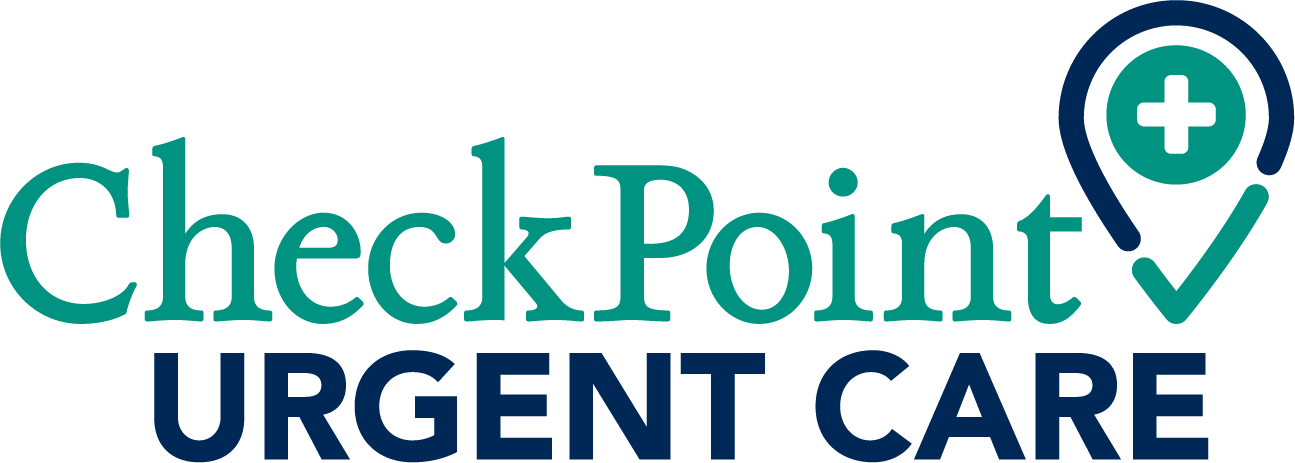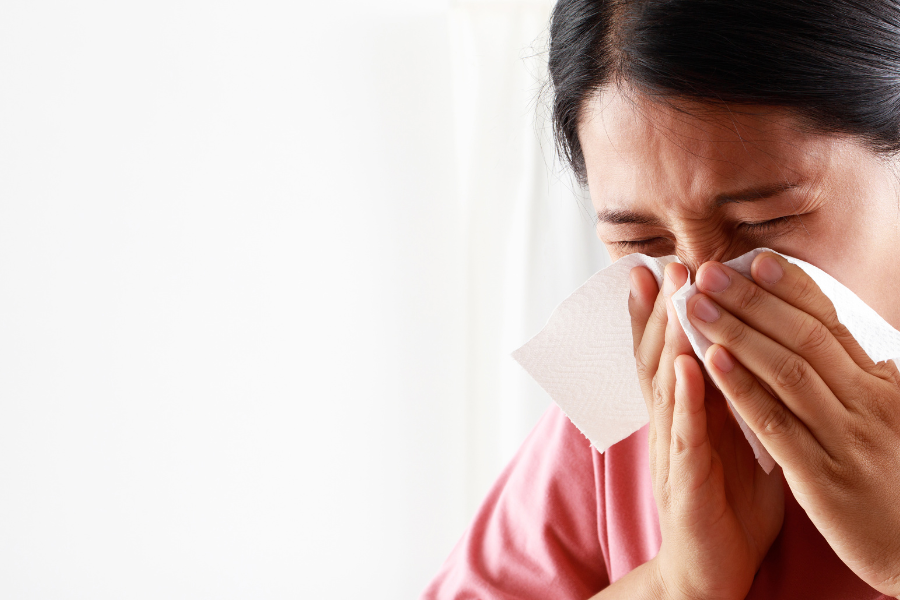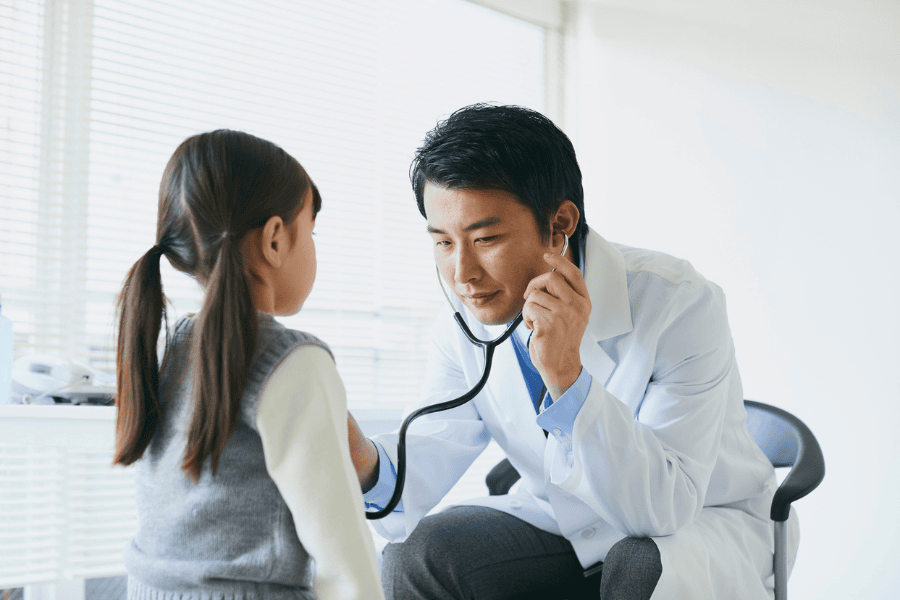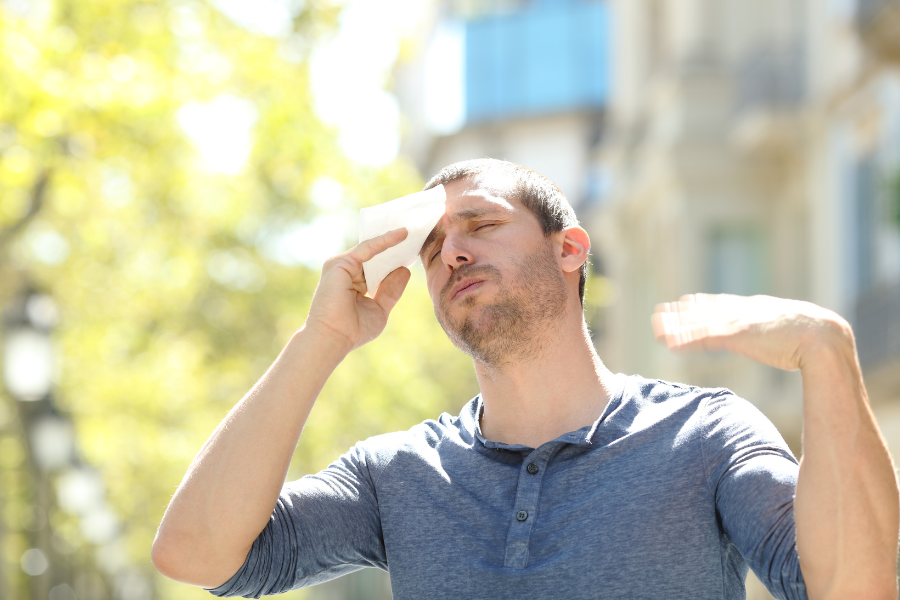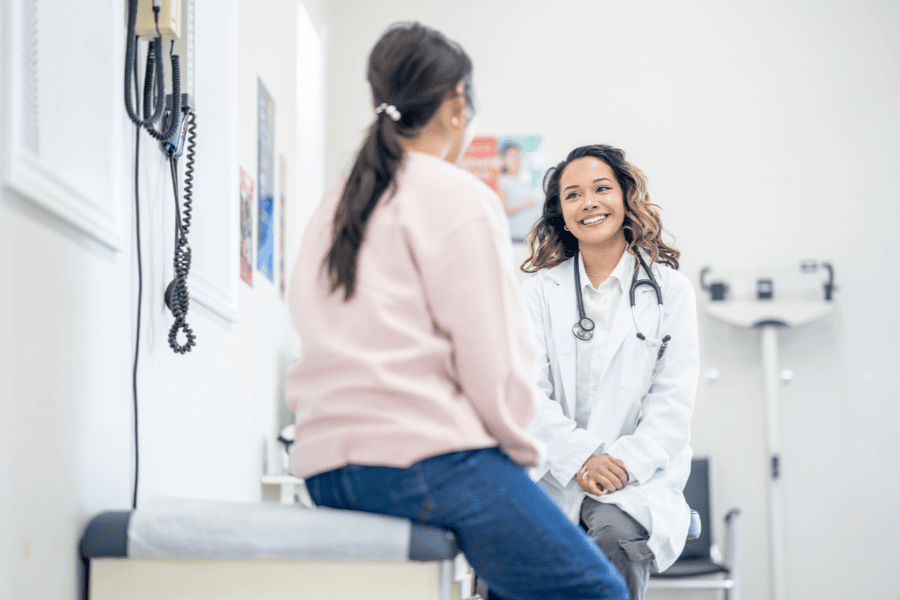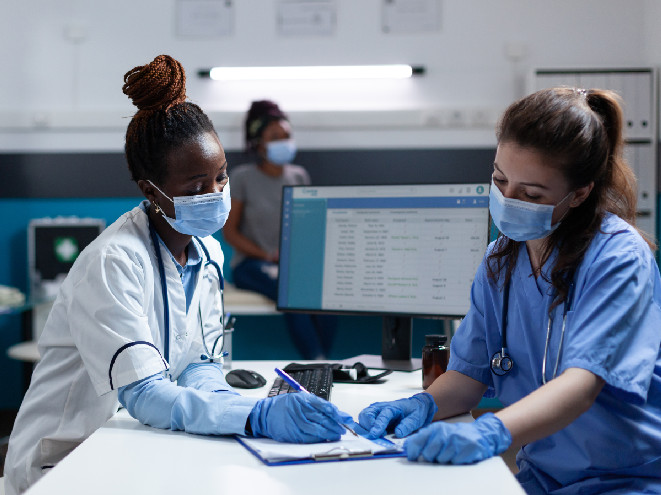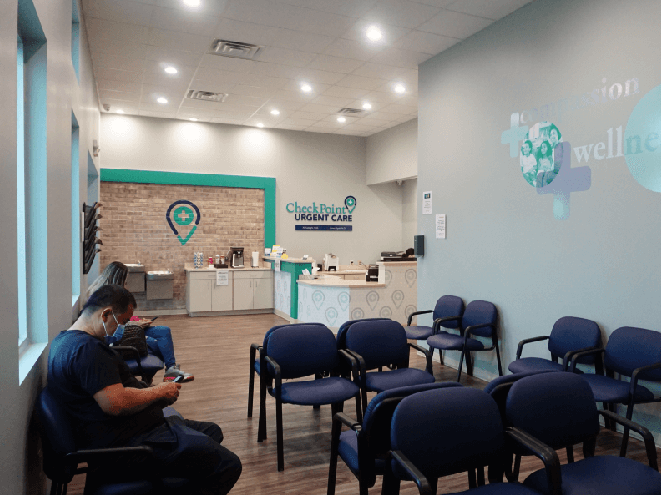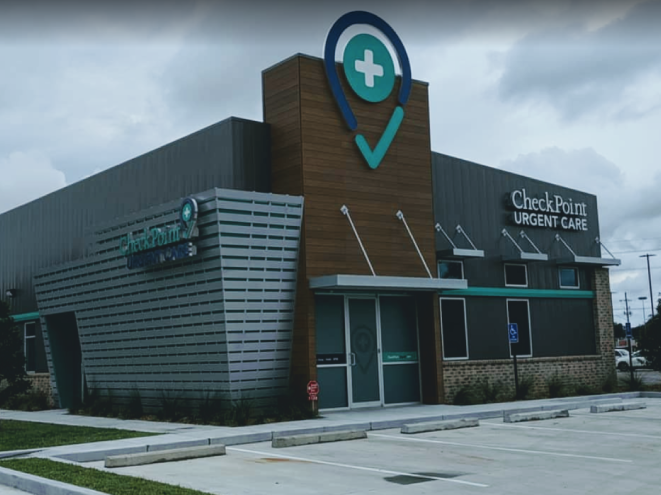We all know the familiar feeling, a stuffy nose, sore throat, and maybe a slight fever. We will all come into contact with the common cold, and maybe even more than once a year. Data from experts tell us that most adults will have 2-3 colds per year, and infants and young children can expect to have more frequent colds.
Common Cold
When you find yourself ill, you can likely treat the symptoms at home, but you should seek medical attention at your local Checkpoint Urgent Care if symptoms become severe. Keep reading to recognize those symptoms.
Symptoms of a Common Cold
The common cold is caused by a virus that infects the nose and throat, commonly known as the upper respiratory tract. Symptoms typically develop one to three days after exposure to the virus or an infected person. Symptoms range from person to person but generally include:
- Stuffy or runny nose
- Sore throat
- Cough or sneezing
- Low-grade fever
- Mild body aches
Most will recover from symptoms in a week to 10 days. Most colds can be treated with rest, fluids, and over-the-counter medications.
When to Seek Medical Help for a Cold
If you or your child aren’t getting better, you might consider seeking medical attention. Adults should seek medical help if:
- Symptoms fail to improve
- A fever of 101.3F for more than three days or a fever that returns after a period of no fever
- Shortness of breath
- Severe sinus or throat pain or persistent headache
Children should see a doctor if they have any of the following symptoms:
- Fever of 100.4F in newborns or infants up to 12 weeks old
- Rising fever, or fever lasting for more than two days
- Difficulty breathing
- Loss of appetite
- Severe fussiness
- Ear pain or severe headache, sinus pain or throat pain
Those who are at higher risk for flu complications should seek immediate medical help for a cold.
Common Cold Prevention Tips
Viruses that cause colds can pass from infected individuals to others through the air and close contact. You can also become infected after handling a sick person’s stool, like through diaper changes, or other bodily fluids, like saliva or snot. You can protect yourself and your family by taking some prevention steps:
- Washing hands often with soap and water
- Avoid touching your eyes, nose, and mouth with unclean hands
- Stay away from those who are sick
If you find yourself ill, you can protect others by staying home and keeping sick children home from school or daycare. Disinfecting surfaces regularly can help stop the spread, coughing, or sneezing into a tissue or your upper sleeve. And remember, there are no vaccinations for common colds.
A Cold or Something More Severe?
Symptoms of the flu, covid and other respiratory illness may appear with similar symptoms to the common cold. In general, infections from covid or the flu are generally more severe and can include serious fatigue. Complications from the flu can be serious, so seek immediate medical attention if you believe you or your child has the flu. An annual flu vaccine is the best way to protect yourself against the flu.
Stay Healthy with CheckPoint Urgent Care
A common cold is generally a mild illness, but even the smallest tasks are harder when you’re sick. Most of the time, a common cold can be treated with rest, fluids, and over-the-counter medications. However, when you can’t shake the symptoms or need medical attention, it might be time to visit CheckPoint Urgent Care. With our locations in New Iberia, Crowley, and Opelousas, we are always close and ready to get you feeling better. We are open seven days a week for all of your emergencies.
